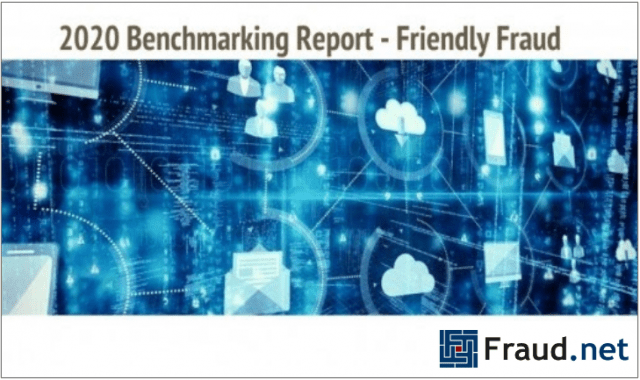
Friendly Fraud Can Reduce Online Profits by 25%: Fraud.net Study
Comprehensive analysis uncovers the challenges of first-party fraud, or “friendly” fraud, which is difficult to predict and detect, and is the most expensive form of fraud for business.
NEW YORK, NY – Fraud.net, the leader in AI-Powered Online Fraud Prevention Solutions, today released the 2020 Benchmarking Report for Friendly Fraud. The report, which analyzed a random sampling of 100,000 chargebacks from orders that were processed over 3 years by large digital merchants, may be the most comprehensive survey of this type of fraud ever conducted.
“Friendly,” or first-party fraud is when apparent customers make a digital e-commerce purchase and then renege, either because they obtained a better deal somewhere else (e.g. a lower price on an online airline ticket), or didn’t end up needing the service (e.g. travel insurance), or just didn’t want to pay for the goods or services they received. According to the Fraud.net survey, friendly fraud now occurs with 50 percent greater frequency than third-party fraud — fraudulent use of a stolen credit card, for example — contributing to a problem that is costing online businesses billions of dollars per year.
“First-party or friendly fraud involves what appears to be good customers making legitimate purchases, who then seek a refund or chargeback after the transaction is successfully completed,” said Cathy Ross, Co-founder and President of Fraud.net. “Because they appear to be real sales at the time of purchase, many businesses can’t prevent or predict this type of fraud and, worse, are reluctant to flag it after the fact, out of fear that they’ll alienate a future customer.”
These challenges around identifying and reporting friendly fraud create moral hazard and expose weak controls, resulting in some organized friendly fraudsters hitting the same businesses again and again.
Key findings of the study include:
- Friendly fraud can result in a 1 percent reduction in legitimate sales, amounting to a 25% reduction in profits for online businesses.
- Friendly fraudsters will hit a company nine times before they’re shut down, consequence-free, allowing them to move on to other businesses.
- Chargebacks often understate the true impact of friendly fraud, which can be four times as large.
“Enhancing data with collective intelligence — looking at buying behavior and fraud across multiple companies and vendors — and interpreting it with machine learning are the keys to identifying and preventing friendly fraud,” said Ross.“This also helps to address firms’ reluctance to flag friendly fraud, once they see many of these transactions are committed by repeat offenders.”
The complete report, and a webinar discussing key findings, is available for free here.
About Fraud.net
Fraud.net uses collective intelligence and machine learning to make digital transactions safe. Leveraging sophisticated AI / deep learning to analyze transaction data in real-time, Fraud.net identifies transactional anomalies and hard-to-detect fraud. Fraud.net provides a unified solution for digital enterprises in every industry, including online retail, financial services, and travel. Fraud.net also provides the industry’s only cloud-based “glass-box” system for fraud, offering a transparent and comprehensive presentation of risk to make businesses safer, smarter, and more profitable. Learn more at www.fraud.net.
Media Contact:
David Zweifler
media@fraud.net
+866-971-2030
MEDIA FILES:



